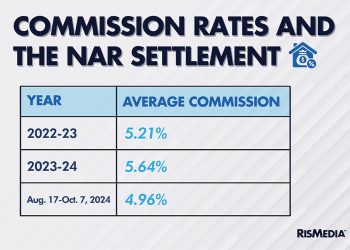Can you believe Quarter Four is just a few weeks away?
As we enter these last few months of the year, it’s time to start thinking about ending 2020 on a high note and planning your luxury real estate marketing strategy for 2021.
To help you do that, we spoke with luxury real estate marketing expert David Collins of REAL Marketing, who gave us a few simple strategies you can start using right now to nail down your marketing plan for the rest of the year and start creating goals that stick.
Why listen to Collins about goal setting and improving your marketing plan?
There are quite a few reasons…
Collins has completed one Ironman competition and 42 marathons, including winning two Disney Marathons as a Master at a six-minute pace…at 41 years old.
He also completed a third Disney marathon, but, just a few weeks before his fourth, he experienced a serious car accident that left him with shattered legs and was told he would never walk again without the aid of a walker.
But just 15 months later, he went on to complete his fourth Disney marathon.
As if that’s not enough, his company, REAL Marketing, has over 25 years of expertise, and is the go-to real estate marketing company for luxury real estate experts who are dominating their market.
So, if there’s anyone who knows how to set goals and reach them, it’s Collins.
Here’s what he has to say about ending 2020 strong:
Double Down on What’s Already Working
In luxury real estate, “shiny object syndrome” is real. The truth is, if you’re looking for a win, the best places to look are where you’ve already had them.
Collins says, “Honestly sit down and write down the transactions you’ve done, and how you got that business, and just be really honest and clear about it.”
That means, right now, don’t worry about reinventing the wheel. Keep it simple, and if something has been working for you this year, now is the time to double down on it.
Write Down Your Goals…On Paper
Collins says, “If you really want to end 2020 on a high note, you have to set goals. Everything else is just a wish.”
He references a study conducted by a large insurance company in which they took their top 500 performers, and half the participants were told to write down their goals on pen and paper. The other half spoke their goals to a partner, and the partner wrote the goals down.
When researchers followed up one year later, guess who was more likely to have reached their goals?
If you guessed the participants who wrote their goals down with pen and paper, you are correct.
In fact, 80 percent of those who wrote down their goals had achieved them.
That’s why Collins’ first tip for goal setting is to write them down on paper, the old-fashioned way.
Beyond that, Collins notes that while it’s nice to shoot for doubling your business over the next year, aiming for a 50-percent increase is less overwhelming and far more likely to be achieved.
However, he adds that if you find yourself close to hitting your goal before the deadline you’ve set, then it’s critical to set the goal higher.
He says, “The art of incredibly successful goal setters is they literally never hit their goal. They’re always moving the bar.”
Make Time for the Little Things That Add Up to Big Achievements
Collins makes the point that goal setting is useless unless you make time for hitting those goals. He religiously uses a time blocking spreadsheet to map out his day and ensure everything he wants to get done, gets done.
He knows exactly when he’ll be making phone calls, when he’ll be answering emails, and even when he’ll have time for breaks and exercise.
In one column, he ranks any “open tasks,” or things that still need to get done, in order of importance.
Using a system like this is especially important for luxury real estate professionals to take control of their time and to remember the “little things,” like checking in with past clients, organizing CRM contacts or making time to reassess their marketing plan.
Don’t Just Rely on Internet Marketing
Collins shares a 2009 statistic from the National Association of REALTORS® when just 5 percent of buyers and sellers found their agent online.
But here’s the kicker…
Research from 2019 shows that statistic is exactly the same. So, what does that mean for your marketing plan? Why focus on internet marketing at all?
Collins says it’s still important to have a professional online presence with valuable content available because that’s where people go to validate their options.
When they see your business card or direct mail, they’re likely to go straight to your website to see what you’re all about. He even suggests small details, like including a banner of international flags on your website to let people know you work internationally.
At the same time, Collins makes it clear that you’re still more likely to win new business via direct mail.
“Back before internet marketing, each area had a dominating agent. But now with Zillow, you don’t know who the neighborhood expert is.”
But becoming the neighborhood expert is simple. He says that, in just four months, making contact twice monthly with a brochure and a market report will put you on your neighborhood’s radar.
The catch? You need to put real effort into how your market reports and brochures are presented, because your prospects are paying attention to your marketing abilities, your effort and your consistency.
That means every single piece of direct mail you send out needs to be beautiful, branded, strategic…and consistent.
His last word of advice? Make it personal. Use your prospects’ names on your mailers and you’re eight times more likely to get engagement.
Want more help creating a marketing plan that positions you as the community expert?
The Institute’s Membership gives you access to an ever-evolving learning library of trainings, resources and done-for-you benefits to help streamline your business.
Learn more about our training schedule here.
 Diane Hartley is the president of the Institute for Luxury Home Marketing, a premier independent authority in training and designation for real estate agents working in the upper-tier residential market. Hartley brings her passion for luxury marketing and more than 20 years of experience growing and leading businesses to her role as president of the Institute.
Diane Hartley is the president of the Institute for Luxury Home Marketing, a premier independent authority in training and designation for real estate agents working in the upper-tier residential market. Hartley brings her passion for luxury marketing and more than 20 years of experience growing and leading businesses to her role as president of the Institute.











